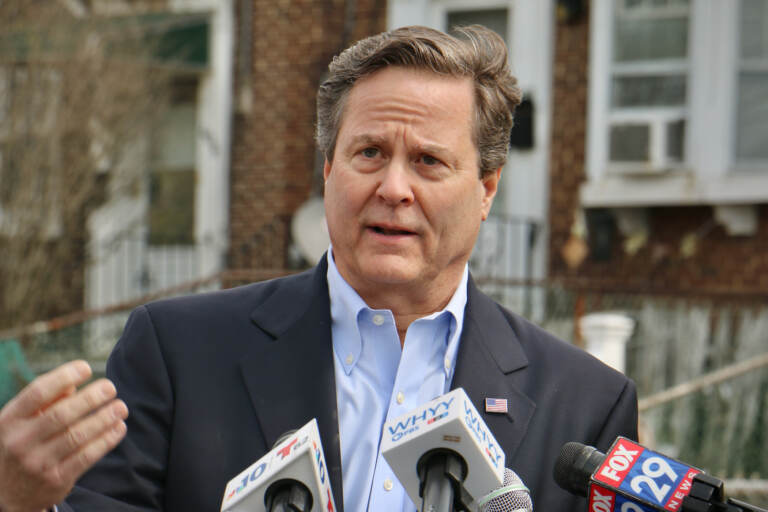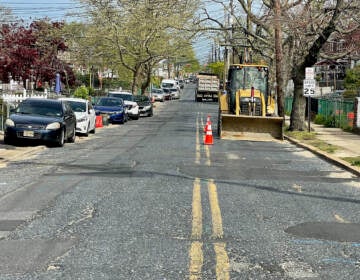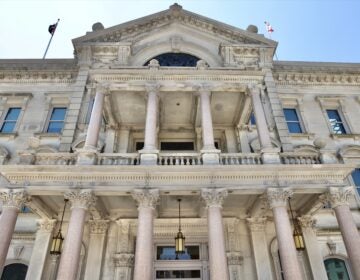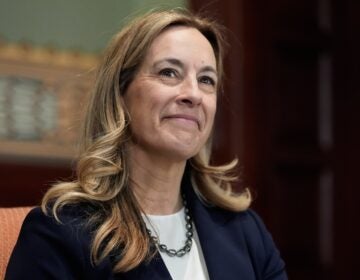Norcross’ plan to go after big oil to lower gas prices and why it might not work
Norcross wants to suspend the federal gas tax while going after big oil profits to discourage price gouging. But there’s no gouging happening, said one analyst.

U.S, Rep. Donald Norcross announces his intention to introduce legislation to curb gas prices and stop price gouging by oil companies during a press conference in Camden. (Emma Lee/WHYY)
While he was in Camden on Thursday, U.S. Rep. Donald Norcross announced he would soon introduce a bill to address high gas prices when he returns to Washington this week.
The three pillars of his “The Gouge Act” include suspending the federal gas tax, taxing what he called “excessive” oil company profits, and empowering the Federal Trade Commission to sue companies for greed.
Norcross (D-N.J.) said he had talked about putting a moratorium on the gas tax, but he adds that it should be done in a way to replenish the Transportation Trust Fund, which provides funding for road projects like the reconstruction of 27th Street in East Camden.
“It’s good for jobs and it’s good for the community,” he said. “It’s about lowering prices for drivers, discouraging the gouging by the oil companies and certainly punish those with corporate greed.”
The congressman also railed against the record profits that oil companies have been making. He called out ExxonMobil, which recorded its best first quarter in seven years, and Chevron, which recently had its best year since 2014.
“It’s wrong, and quite frankly, it’s unpatriotic,” Norcross said. “We need to hold them accountable, incentivize corporations to be reasonable with their pricing.”
But what you see at the gas pump is not price gouging, according to Clifford Winston, senior fellow in the economic studies program of the Brookings Institution. He said what is taking place is normal after the market experiences a “supply shock.”
“We’ve had a shock in that there is a reduction in supply from one of the major suppliers, Russia,” he said. “There will be shifts to get oil from other countries. They obviously will raise their price as demand increases and that will filter its way down to America and American gas stations since they buy oil on a world market.”
Winston adds that gouging would be difficult to do in the oil industry due, in part, to competition.
It is the competitive market that puts a lid on that kind of behavior because somebody tries to do it and there is a competitor in the market, he or she will just undercut them,” he said. “That strategy won’t work.”
Winston suggested that people changing their behavior by driving less or taking public transportation will have a more immediate effect of how much is paid at the pump. In regards to Norcross’ proposal, he believes it won’t have a big effect.
“I think it’s sort of a classic case of an elected official with the best of intentions … but simply just doesn’t stop to think about the economics of the market and realize … this is not going to do much to help consumers,” he said, “even if it might help me politically, showing that I’m concerned about my constituents.”
WHYY is your source for fact-based, in-depth journalism and information. As a nonprofit organization, we rely on financial support from readers like you. Please give today.







